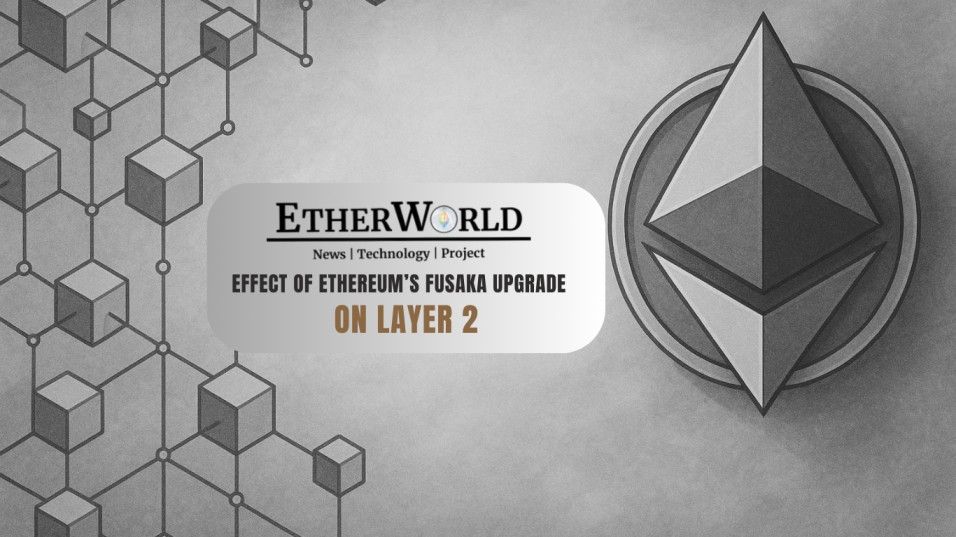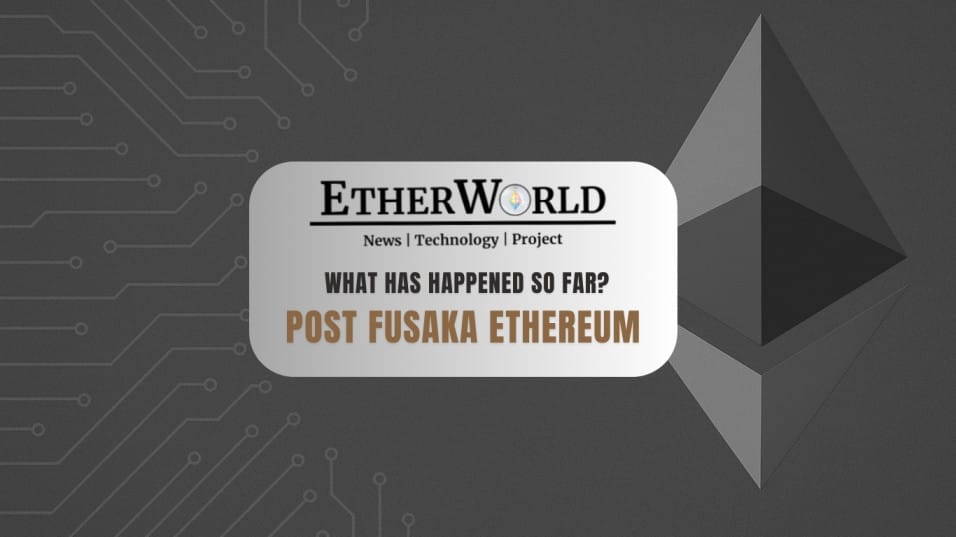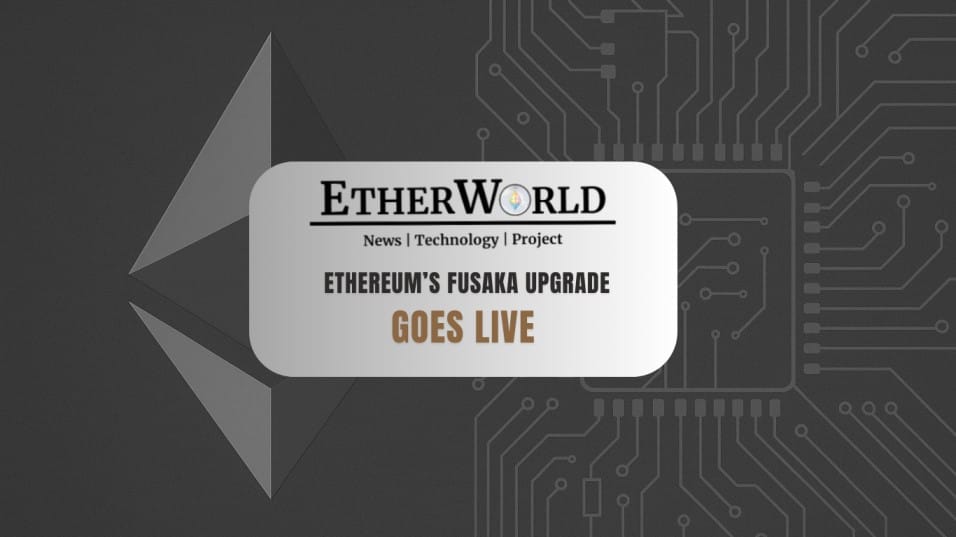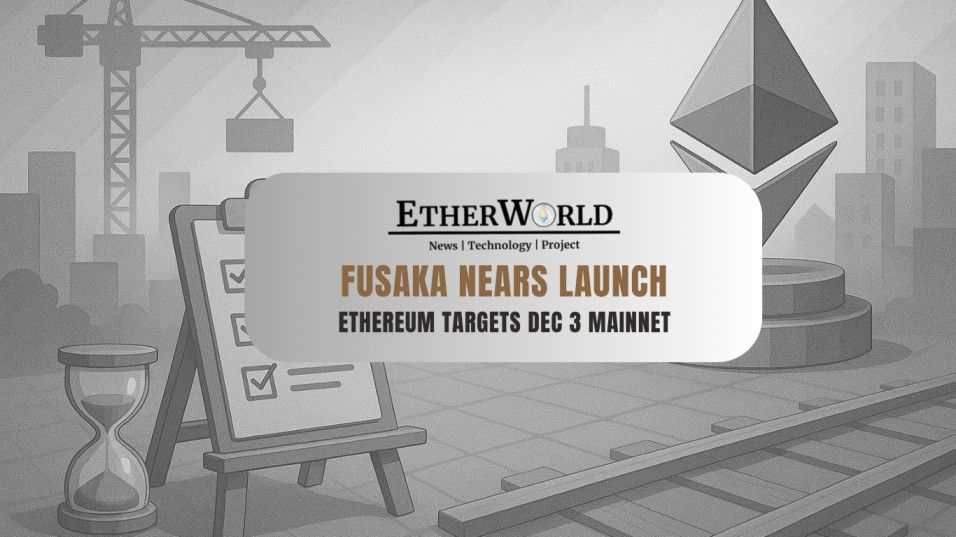Effect of Ethereum’s Fusaka Upgrade on Layer 2
Ethereum’s Fusaka Upgrade empowers Layer 2s with cheaper fees, scalable blob space, & stable economics, marking a major leap toward mass adoption.

Ethereum’s upcoming Fusaka Upgrade (Q4 2025) is set to significantly reshape the Layer 2 (L2) landscape. While past upgrades like Dencun introduced proto-danksharding with blobs, Fusaka takes a step further by tackling data availability, fee stability, proposer predictability, and flexible scaling.
For Layer 2 rollups, this upgrade means cheaper fees, greater throughput, and more predictable economics, ultimately bringing Ethereum closer to mainstream-scale adoption.
Data Availability & Scaling
The centerpiece of Fusaka is EIP-7594: Peer Data Availability Sampling (PeerDAS). Instead of requiring every node to store all blob data, PeerDAS allows nodes to store only fractions while verifying availability through sampling.
For Layer 2s, this means:
- Dramatic cost reduction for data posting.
- Scaling to 128+ blobs per block without compromising security.
- Stronger infrastructure for zk-rollups and optimistic rollups.
By unlocking efficient data availability, PeerDAS addresses the single largest bottleneck for Layer 2 economics, paving the way for Ethereum to compete with high-speed blockchains while maintaining decentralization.
Fusaka introduces EIP-7892: Blob Parameter Only (BPO) Hardforks, which make it possible to adjust blob space more frequently without waiting for major upgrades. For Layer 2s, this provides:
- Predictable scaling roadmaps, ensuring capacity grows with demand.
- Lower risks of blob fee spikes due to scarcity.
- Reduced coordination overhead for developers and infrastructure operators.
This lightweight mechanism ensures that Ethereum’s data layer grows in tandem with the rapid adoption of L2 rollups, creating a self-adjusting foundation for scaling.
Stabilizing Blob Fees & L2 Economics
Blob fees have experienced volatility since their introduction in Dencun, at times collapsing near zero. EIP-7918 solves this by tying blob base fees to execution costs, ensuring a sustainable pricing model.
For Layer 2s, the benefits are clear:
- Stable and predictable costs for posting rollup data.
- Prevention of market collapse where blobs lose meaningful pricing.
- Fairer alignment between compute resources and blob pricing.
This ensures that L2 economics remain healthy and rollups can offer users consistent, affordable transactions.
Infrastructure & MEV Improvements
Several other Fusaka EIPs indirectly strengthen the Layer 2 ecosystem:
- EIP-7642 (History Expiry): Speeds up node synchronization, reducing costs for rollup operators and indexers.
- EIP-7917 (Deterministic Proposer Lookahead): Improves MEV mitigation and allows rollups to better coordinate settlements with predictable proposer schedules.
- EIP-7939 (CLZ Opcode): Cuts proving costs for zk-rollups by making cryptographic computations cheaper.
- EIP-7951 (secp256r1 Support): Enhances wallet compatibility, enabling L2 adoption across billions of mobile & hardware devices.
These changes strengthen the settlement and operational foundation that Layer 2s rely on, making Ethereum’s base layer more efficient and L2-friendly. By improving data availability (PeerDAS), making blob scaling flexible (BPO), stabilizing blob fee markets, and optimizing infrastructure for rollups, Fusaka cements Ethereum’s role as the settlement layer of the future.
If you find any issues in this blog or notice any missing information, please feel free to reach out at yash@etherworld.co for clarifications or updates.
Related Articles
Disclaimer: The information contained in this website is for general informational purposes only. The content provided on this website, including articles, blog posts, opinions, & analysis related to blockchain technology & cryptocurrencies, is not intended as financial or investment advice. The website & its content should not be relied upon for making financial decisions. Read full disclaimer & privacy policy.
For Press Releases, project updates & guest posts publishing with us, email contact@etherworld.co.
Subscribe to EtherWorld YouTube channel for ELI5 content.
Share if you like the content. Donate at avarch.eth.
You've something to share with the blockchain community, join us on Discord!




